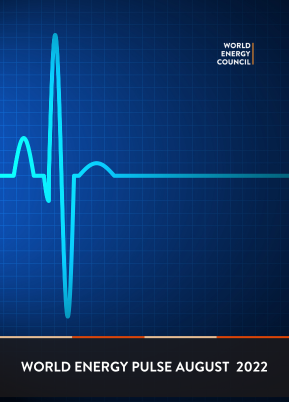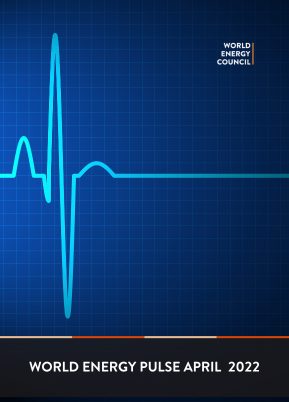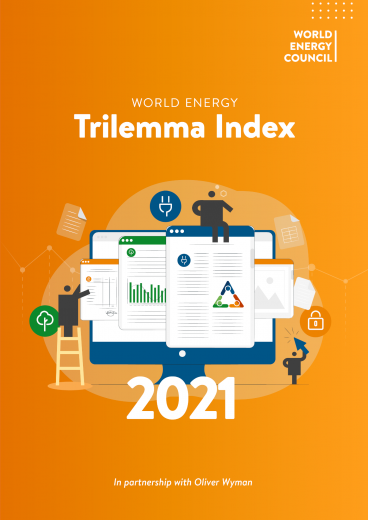World Energy Pulse 2022
Climate, Covid and Conflict: Implications and Outlooks
The world is reeling from impacts of global energy shocks triggered by the convergence of crises: climate change, covid, and conflict.
The interaction of these multiple crises has had cascading and uneven impacts on energy which are felt at all levels of society. As leaders seek to step up to meet these crises, responses reflect different experiences and expectations.
World Energy Pulse August 2022
In July 2022, the World Energy Council polled nearly 600 leaders from across the global energy community to evaluate the continuing impact of multiple global crises on the pace of energy transition. The Pulse records how perceptions have changed among global energy leaders since the Council's last survey in April. Key findings reveal.
- 44% of Pulse respondents indicate declining optimism about the pace of energy transition. The shift comes as energy security increasingly reframes affordable climate security actions
- 43% energy leaders report seeing greater fragmentation in global approaches to the energy transition as new and cascading crises affect energy systems and consumers worldwide
- Respondents indicate a return to a more balanced World Energy Trilemma - energy security, energy affordability and environmental sustainability - approach to energy policymaking globally, even as the importance of each pillar differs significantly by region
- In Europe, rapid shift in policy is seen resulting in a reprioritisation of energy security over affordability and environmental sustainability
- Respondents show a global absence of bottom-up or consumer-led leadership models, with 57% of leaders indicating no or very little evidence of these models emerging in their countries
Downloads

World Energy Pulse August 2022
Download PDFWorld Energy Pulse April 2022
World Energy Pulse April 2022 presented a quick “pulse” of attitudes and trends felt across the industry, immediately after the war in Ukraine, and provided global and regional perspectives of crises implications and transformational actions right.
Findings were based on responses to the World Energy Pulse received during the first half of April 2022. Key findings of World Energy Pulse April 2022 indicated:
- 86% of global respondents indicated near-universal agreement that governments must intervene to address price shocks and affordability impacts on energy users, despite most respondents indicating very limited government action has been taken to address energy security and affordability to date.
- Over 80% of global respondents signalled direct and/or indirect impacts from the European energy security crisis on their countries’ energy supply chains. The same share of respondents expect disruption to affect energy markets in the long term or permanently, with 25% showing no confidence of a return to pre-crises conditions.
- Most respondents expect countries to seek energy security and resilience through regional or national action – marking a sharp shift away from previous globalization trends.
- Respondents from Africa identified energy affordability and equity as the highest individual short-term concern. Unsurprisingly European respondents identified energy security as its top concern.
To inform the World Energy Community and enable real-time decision-making amid a fast-changing situation, World Energy Pulses will be taken at regular intervals over the coming months.
For more detailed data and insights, please contact partners@worldenergy.org
Downloads



_368_520_s_c1_c_c.png)






